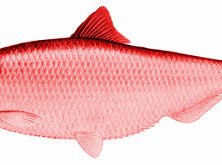From an anthropological perspective, food is part of how we identify ourselves and also the cultures we belong to. Food structures our identities, social behaviour and frames our concepts of others. Food is one of the ways we most commonly experience foreign foods. What we don’t eat is as important to what we do in defining who we are. We can look at the similarities and differences between ‘east and western’ cuisines as an illustrative tension of formative cultural identity.
Tag Archives: colour psychology
A RED HERRING [ SEEING RED: PART 4 ]
posted by Culture Decanted
“This is your last chance. After this, there is no turning back. You take the blue pill – the story ends, you wake up in your bed and believe whatever you want to believe. You take the red pill – you stay in Wonderland, and I show you how deep the rabbit hole goes. Remember, […]
BEING IN THE RED [ SEEING RED: PART 3]
posted by Culture Decanted
“The effect of this colour is as peculiar as its nature. It conveys an impression of gravity and dignity, and at the same time of grace and attractiveness”. -J.W Goethe An evolutionary perspective alone doesn’t shed light on why we see red used in so many different contexts. As discussed previously, our attraction to […]
Why does red flag sex? [Seeing Red: Part 2]
posted by Culture Decanted
Why does red flag sex? Red is also a sensual colour. There have been studies that link the colour red to the perceived attractiveness of partners. When men or women wear red, they appear more attractive to their partners. While some connotations of red are socio-cultural, we find many shades of red in the animal world, from […]
What is our appetite for the colour Red? [ Seeing Red: Part 1]
posted by Culture Decanted
“I love bright red drinks, don’t you? They taste twice as good as any other color.” ― L.M. Montgomery, Anne of Green Gables What is our appetite for the colour Red? From an evolutionary perspective, the colour red is believed to excite and engage our eyes because it was a beneficial evolutionary-adaptation for a […]





Recent Comments